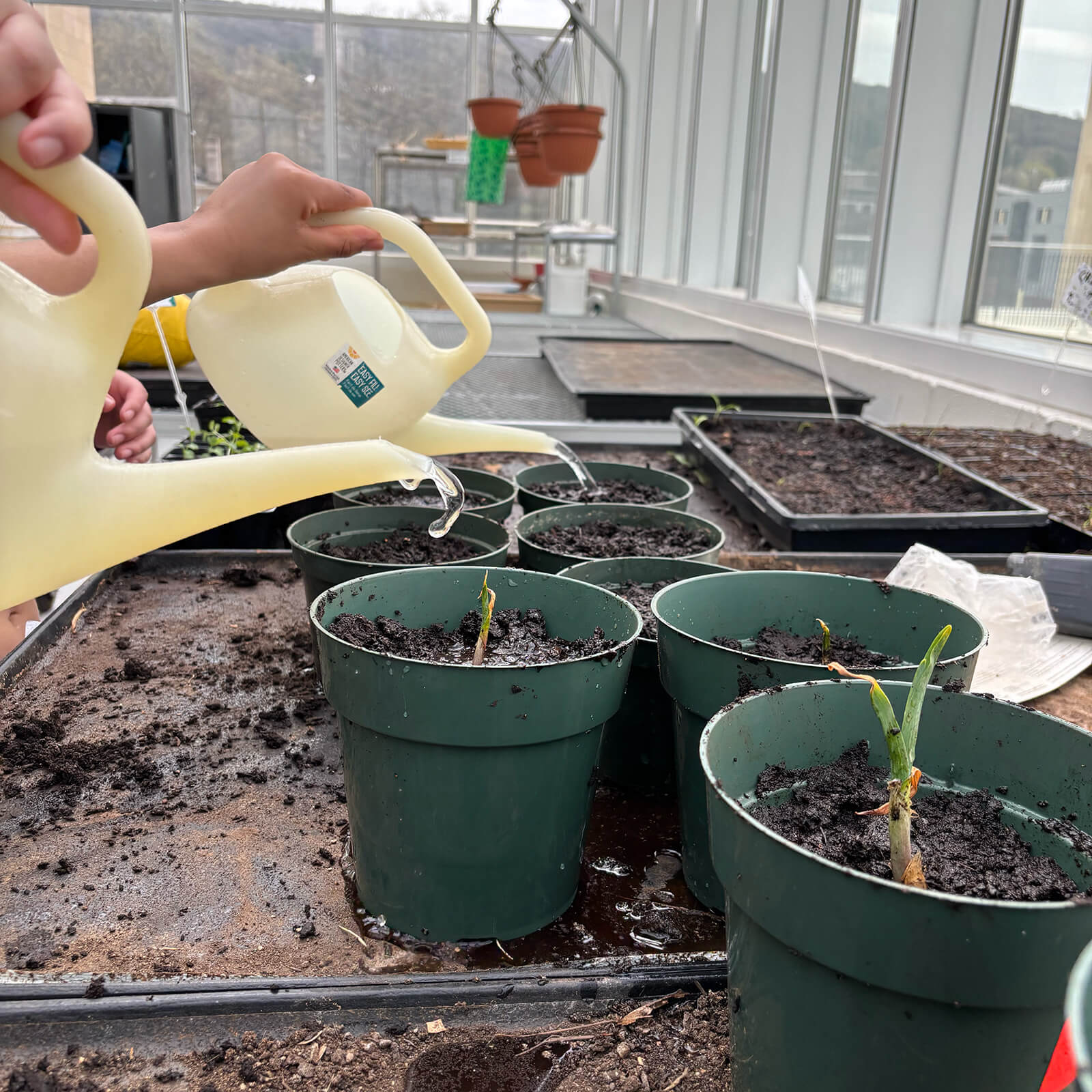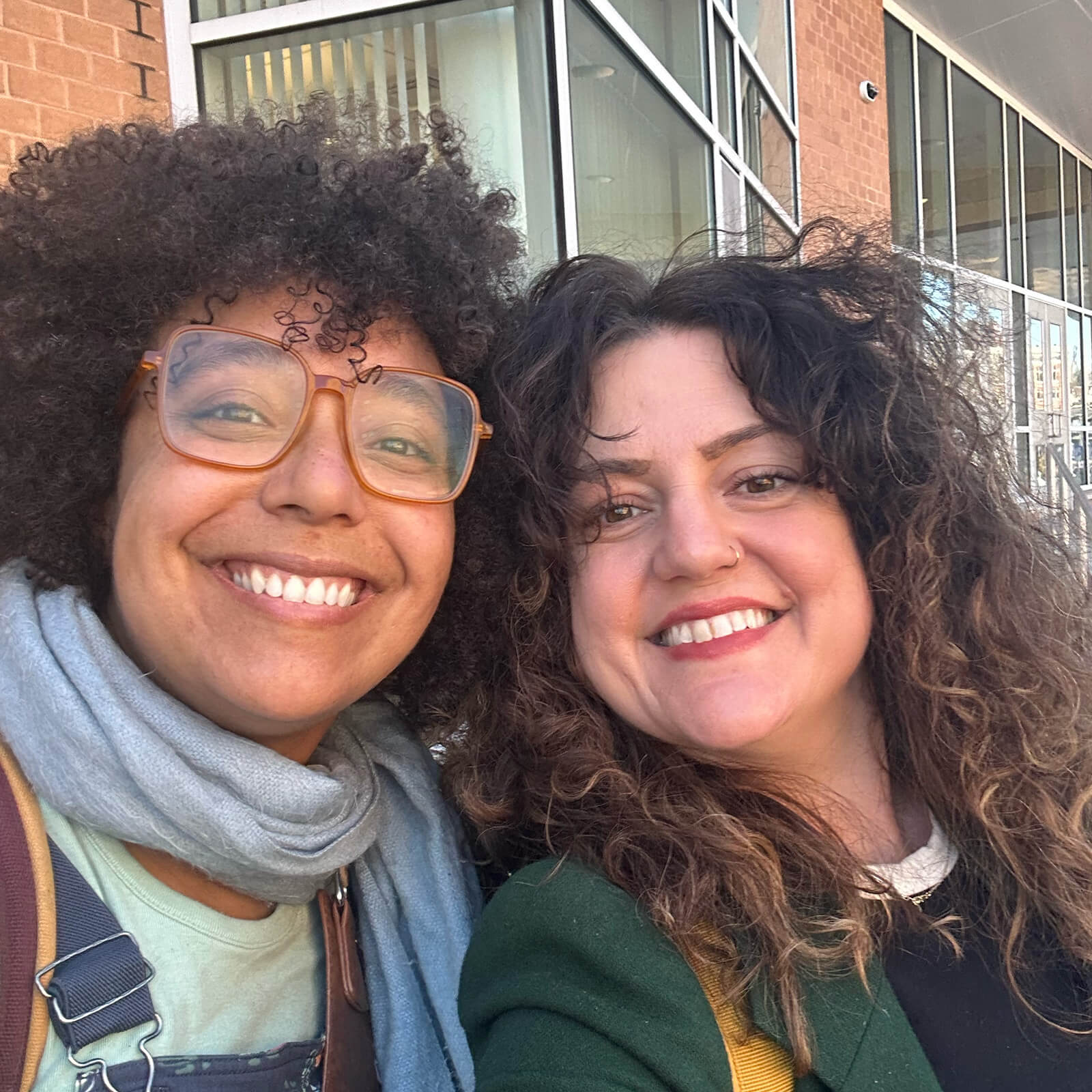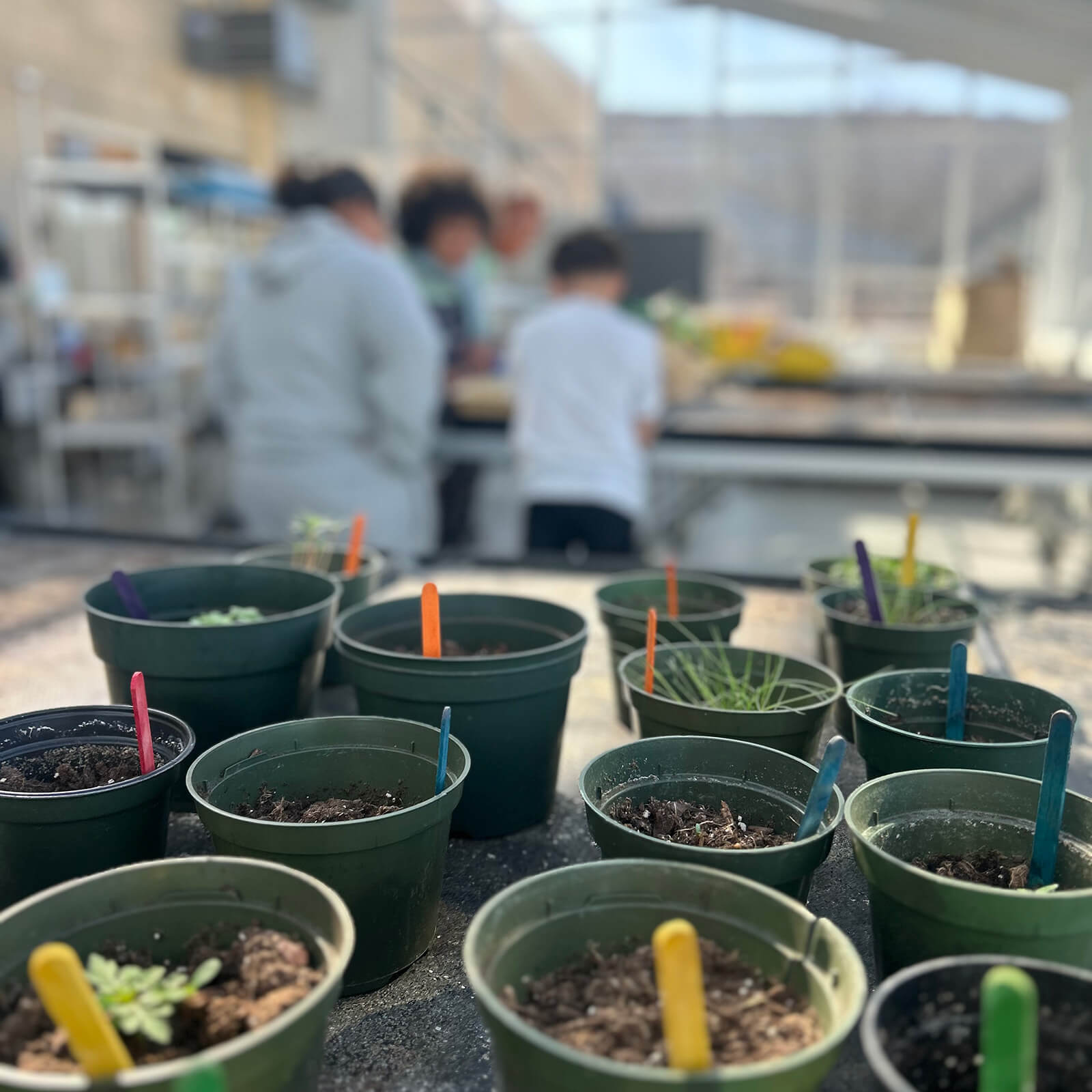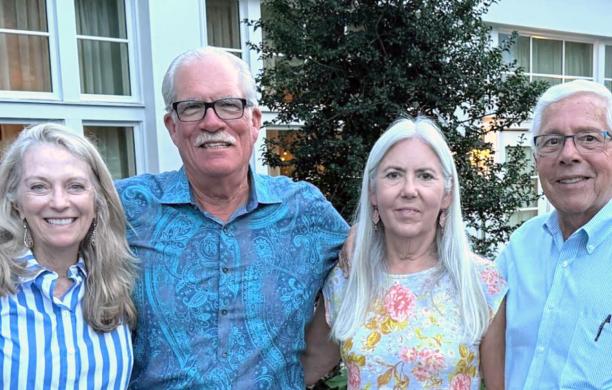Broughal Middle School’s state-of-the-art rooftop greenhouse, once a vibrant hub for student learning and growth, was experiencing staffing issues. That changed when the school’s leadership got to know members of Lehigh University’s College of Health (COH), sparking a collaboration that would not only provide a new curriculum for the school’s students but also nurture deeper connections with the South Side community.

Beth Dolan, dean of COH, was excited at the idea of a collaboration with the middle school and had just the right person in mind to lead Lehigh’s side of it. Kate Jackson, assistant professor in the department of community and global health, has a background in social services, policy, and advocacy and was well known by her colleagues for her concern for gardens and community. “With deep passion for Bethlehem and her knowledge about the power of gardening, I knew she’d be a perfect match for this opportunity to bring the college and community together,” says Dolan.
An Idea That Grew From Local Gardens
Jackson understands the value of Bethlehem’s vibrant garden community, as her Ph.D. in public affairs and community development at Rutgers focused on urban agriculture and how communities organized their neighborhoods around garden spaces.
“Gardens are so much more than food,” says Jackson. “[In Bethlehem’s South Side], we have this amazing group of people that live here, know the land, who have these gifts and talents for growing and teaching youth. I thought, ‘Why don’t we see if there are folks who would be interested in applying their skills and connecting with the students?’”
Jackson reached out to Nia Watson, whom she met through her work at Lehigh’s Esperanza Garden and the city’s MLK Community Garden. Watson not only said yes but coincidentally had already developed a concept for a gardening curriculum some years back. By collaborating with Lehigh, Watson says, “I had the opportunity to make it a reality.”
A Fertile Ground for Learning

While Jackson and Watson were both excited about the possibilities of the project, it took two years to develop. Jackson needed to secure funding and approval for the research that would be collected during the pilot program.
“We received a Faculty Innovation Grant (FIG), which was amazing,” says Jackson. Lehigh’s FIG program supports the establishment of new projects, taking existing research in promising new directions, and expanding current research programs beyond their scope. “So this was a perfect way to start the pilot program and see the greenhouse come to life.”
The pilot program began early this spring and involved Broughal Middle School’s sixth-, seventh- and eighth-grade students. Watson’s curriculum was intentionally nontraditional, blending hands-on gardening with prompts for reflection, emotional check-ins, and open-ended conversation. Rather than impose a rigid structure, Watson created space for students to direct their own learning in the greenhouse.
“Everything takes time, and time is important to build trust,” Watson explains. “It was creating a relationship of consistency and holding a lot of space for silence and not necessarily pushing anything on them.”
Growth Comes in Different Forms
Because the program wasn’t rigid, students found their own way to connect with the earth — and each other. The class included pre- and post-surveys, journals, and emotional calendars. But Jackson and Watson quickly discovered that traditional data collection methods weren’t always effective.
“Students did not like surveys,” Jackson notes. “The journals also didn’t resonate with many of the students because that’s not how they preferred to share their feelings.”
What did work was conversation, photography, and the simple act of tending to plants. “We threw a couple cameras out on the table. The students liked taking photos. They liked talking while they were touching soil,” Jackson says.
The feedback collected from the pilot program will help refine the curriculum, ensuring it remains student centered and culturally relevant.

Community Engagement Takes Root
On the last day of class in late May, Watson invited residents from the South Side and local gardeners to meet the students.
“I invited folks in to look at everything they had accomplished,” says Watson. “And we also made a commitment to the students that we will continue to grow food this summer, and we will care for what they started.”
Adds Jackson, “This is so important to the sustainability of this program because most school garden programs just end because there’s no one to care for it over the summer.”
Jackson sees this as a fitting metaphor for the students in the pilot program. “You are part of this cycle, and you deserve care. You deserve to take up space and grow to your fullest self,” she says. “And to see the plants being shared and given to the greater community — that is so important and beautiful.”
Sowing Seeds for Future Programming
While she is pleased with the pilot program, for Jackson, the work is just beginning. “We’ll have to get really creative in securing funding for the program,” she says. “But once we compile this data, we’ll have a story to tell of why it’s so important to invest in and expand this program and how to do it well. Luckily, we have a great team in the College of Health to reach out to contacts and look at creative ways to make it happen.”
Adds Watson, “It’s important because there’s a deep need, especially in the South Side, to weave together as a community, to heal and grow, to create — and most of all, to just listen.”


